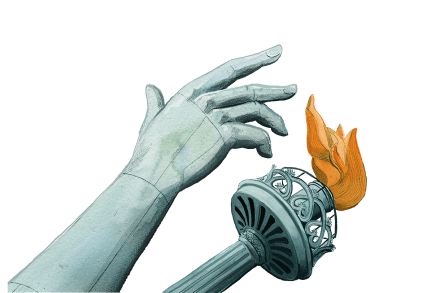Audio Read: Douglas Murray, Matthew Parris, and Kate Andrews
29 min listen
Douglas Murray reads his cover piece in which he argues that liberalism is under threat; Matthew Parris rejoices in the toppling of Bristol’s Edward Colston statue, calling it a thrilling act of history; and Kate Andres explains the problems of policing back in her home country of America.





















